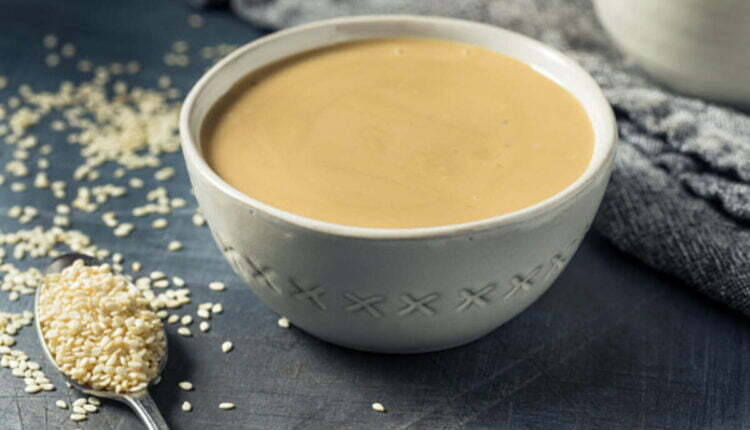What You Should Know About Tahini
Adding tahini to your diet is a great way to increase your intake of healthy fats. It also offers many other benefits. Here are some things you should know about this tasty, nut-based spread.
Nutritional content
Whether looking for a healthy alternative to peanut butter or trying something new, tahini is a superfood with many nutritional benefits. It’s rich in protein, fibre and polyphenols. It also contains magnesium, zinc and selenium.
Tahini is a good source of calcium, phosphorus, iron and magnesium. In addition, it addition, it’s high in monounsaturated fats, which help lower the risk of heart disease. Tahini’s nutritional content can benefit skin health as well. It’s also a good source of antioxidants.
Tahini contains B vitamins like thiamine, which is important for metabolic function. It also contains zinc, which is essential for healthy bones. Tahini is also a good source of omega-3 and omega-6 fatty acids. It also contains polyphenols, which help prevent free radical damage to the body.
The antioxidants in tahini are called lignans. These lignans may also help prevent certain cancers. Similarly, they can also improve brain function and lower the risk of cognitive decline. In addition, they have anti-inflammatory properties.
Health benefits
Besides being a good source of protein, fiber, and other micronutrients, tahini’s health benefits include anti-inflammatory and antioxidant properties. It may also help regulate blood pressure and promote hormone balance.
It is high in monounsaturated fatty acids, which help lower harmful cholesterol levels. Polyunsaturated fats may also reduce the risk of heart disease. It is also a good source of iron and calcium. It also contains phytosterols, which have cancer-fighting properties.
It contains zinc, which helps repair damaged skin tissues. It also contains selenium, an antioxidant. It includes a variety of B vitamins, such as thiamine. It is also a good source of vitamin E. It also includes various minerals, including magnesium, copper, and calcium. It consists of a high level of fiber.
It also contains various antioxidants, which may help protect the body against free radicals. It may also help protect the heart and lungs from damage. It can also improve the health of the digestive tract.
Shelf life
Depending on the storage conditions, the shelf life of tahini can range from one to three years. The shelf life of tahini is affected by several factors, such as the type of sesame seed used, the type of container used, and how it’s stored.
The shelf life of tahini can be extended by refrigerating the jar. When cooled, the flavor and texture of the tahini will become thicker.
The shelf life of tahini in the refrigerator is at least six months. If you plan to store it for longer, keeping it in an airtight container is essential. In addition, the jar should be kept away from sunlight and heat sources, as this will accelerate the oxidation process.
If you’re making your tahini, you should store it in a glass jar or a plastic container. Keep the lid tightly closed after opening the jar. This will prevent moisture and mold from forming.
It’s essential to check the tahini for color changes and smell changes. For example, if the tahini starts to develop a bitter taste or a metallic smell, it is likely to be rancid.
Common allergens
Until recently, sesame was considered only a minor food allergen. As a result, it was not on the list of the top eight food allergens that the FDA determined to be the most common in the United States. Several years ago, however, the prevalence of sesame allergy among children increased significantly. It is now considered the ninth most common food allergy in the United States.
Sesame has been used as a natural flavoring in many foods. It is also an ingredient in several products, including bread, pasta, and baked goods. However, there is often no indication on food packaging that sesame is used. It is sometimes disguised under a different name.
Sesame is commonly found in foods in many different countries. It is also used in cooking oil and is considered a healthy food. However, it is essential to note that sesame can cause allergic reactions, especially in people allergic to peanuts or tree nuts. It is also known to cause hives and anaphylactic shock in some people.



Comments are closed.